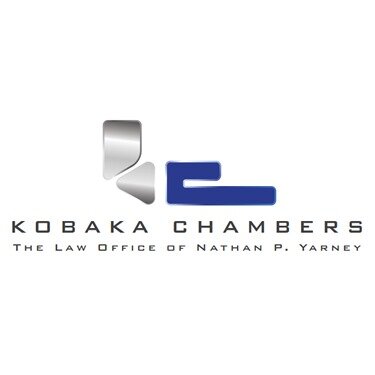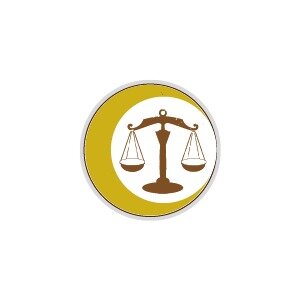Best Family Lawyers in Ghana
Share your needs with us, get contacted by law firms.
Free. Takes 2 min.
Free Guide to Hiring a Family Lawyer
Or refine your search by selecting a city:
List of the best lawyers in Ghana
Ghana Family Legal Questions answered by Lawyers
Browse our 2 legal questions about Family in Ghana and read the lawyer answers, or ask your own questions for free.
- Is it possible for me to get my 7years old boy back?
- My boy wants to be with me, but the father separated him from me and his siblings. the boy is always sad in class,at home everywhere he is going through a lot emotional trauma, psychological trauma etc.
-
Lawyer answer by Papireddy Associates
Yes, it is possible to reclaim custody of a 7-year-old boy, especially if there is evidence that he is suffering emotional and psychological trauma from being separated from his mother and siblings.Legal Basis for Seeking CustodyIn Indian law, the court’s...
Read full answer - Child custody
- I had a child with someone before getting married and relocating to another country. We both agreed that ge will take care of our daughter while I settle and then come for her. Howevet he changef his mind and now does not allow me to speak to my daughter. What... Read more →
-
Lawyer answer by Al-Mithaq& Associations Law firm
I'll need to gather some key legal information based on your circumstances:Which country are you currently residing in?Laws regarding child custody, parental rights, and cross-border parental disputes vary widely by country.In which country is the father of your child currently...
Read full answer
About Family Law in Ghana
Family law in Ghana is a comprehensive area of law that governs family-related issues and domestic relations. It encompasses a wide range of topics, including marriage, divorce, child custody, adoption, and inheritance. Ghana’s family law system is influenced by a combination of customary law, statutory law, and religious principles, reflecting the country's diverse cultural and social landscape. The main statutory provisions related to family law can be found in the Marriage Ordinance, Marriage of Mohammedans Ordinance, Children's Act, and other legal instruments. Understanding family law in Ghana requires familiarity with both formal legal codes and customary practices.
Why You May Need a Lawyer
Engaging a lawyer for family law matters in Ghana can be crucial in several common situations:
- When facing divorce proceedings and needing advice on asset division, custody arrangements, or spousal support.
- During child custody disputes, where legal expertise can help protect your rights and the best interests of the child.
- If you're considering adoption and need guidance on the legal process and requirements.
- In inheritance issues, especially where there are disputes over the distribution of an estate.
- When entering into a marriage and wanting to understand the implications of different types of marriages under Ghana's law.
- To draft or review prenuptial or postnuptial agreements to safeguard personal interests.
- In situations of domestic violence, requiring protective orders or legal remedies.
Local Laws Overview
Family law in Ghana is primarily governed by a mix of customary law and statutory law. Here are key aspects:
- Marriage: There are three main types of marriage recognized in Ghana: ordinance marriage, customary marriage, and Islamic marriage. Each has its own legal requirements and implications.
- Divorce: The grounds and procedures for divorce vary based on the type of marriage. Legal grounds for divorce can include adultery, desertion, and irretrievable breakdown of marriage.
- Child Custody: The Children’s Act prioritizes the welfare of the child. Custody decisions consider the best interest of the child, focusing on ensuring safety, health, and education.
- Adoption: The process is governed by the Children’s Act, requiring adherence to specified legal steps, including obtaining the consent of biological parents when applicable.
- Inheritance: Intestate succession is typically regulated by both customary law and statutory law under the Intestate Succession Law, PNDC Law 111, often leading to complex distribution systems.
Frequently Asked Questions
What types of marriage are recognized in Ghana?
Ghana recognizes three types of marriage: ordinance marriages (civil marriages), customary marriages, and Islamic marriages.
How can a marriage be legally dissolved in Ghana?
Marriage can be dissolved through divorce. The grounds and procedure depend on the type of marriage. Legal advice is recommended to navigate the process effectively.
What are the grounds for divorce under Ghanaian law?
Grounds for divorce can include adultery, unreasonable behavior, desertion, and irretrievable breakdown of the marriage, among others.
Who gets custody of children after a divorce?
Custody decisions are made considering the best interest of the child, often focusing on who can best provide for the child's needs and welfare.
What is the process for adopting a child in Ghana?
The adoption process involves legal application and approval, which includes the assessment of the adopter's suitability and may require the biological parents' consent.
How is property divided after a divorce?
Property division varies depending on the circumstances surrounding the marriage and the parties involved. Courts aim to ensure equitable distribution but may not necessarily be equal.
What legal measures can be taken against domestic violence?
Victims can seek protective orders, and legal prosecution of offenders can be pursued under the Domestic Violence Act and other relevant laws.
How does one challenge an inheritance distribution under customary law?
Challenging inheritance distribution typically requires legal representation to navigate both customary norms and statutory laws.
Can prenuptial agreements be enforced in Ghana?
While not commonly used, prenuptial agreements can be drafted and enforced within the context of civil marriages under specific conditions.
What support is available for single parents?
Support can be sought through child maintenance orders and welfare assistance, guided by provisions in the Children’s Act.
Additional Resources
For those seeking further assistance or information, the following resources may be helpful:
- Ghana Legal Aid Scheme: Offers free legal assistance to qualifying individuals for family law cases.
- Department of Social Welfare: Provides support in child custody and adoption matters.
- Commission on Human Rights and Administrative Justice (CHRAJ): Addresses human rights complaints, including domestic violence issues.
- The Legal Resources Centre: Offers legal education and support to individuals dealing with family law matters.
Next Steps
If you require legal assistance in family law matters in Ghana, consider taking the following steps:
- Identify your specific legal needs and gather relevant documents and information.
- Consult with a qualified family lawyer to understand your legal rights and options.
- Utilize available resources such as legal aid services if you meet the eligibility criteria.
- Follow your lawyer’s guidance to navigate any legal proceedings effectively.
Securing competent legal help is crucial for successfully resolving family issues within Ghana’s legal framework.
Lawzana helps you find the best lawyers and law firms in Ghana through a curated and pre-screened list of qualified legal professionals. Our platform offers rankings and detailed profiles of attorneys and law firms, allowing you to compare based on practice areas, including Family, experience, and client feedback.
Each profile includes a description of the firm's areas of practice, client reviews, team members and partners, year of establishment, spoken languages, office locations, contact information, social media presence, and any published articles or resources. Most firms on our platform speak English and are experienced in both local and international legal matters.
Get a quote from top-rated law firms in Ghana — quickly, securely, and without unnecessary hassle.
Disclaimer:
The information provided on this page is for general informational purposes only and does not constitute legal advice. While we strive to ensure the accuracy and relevance of the content, legal information may change over time, and interpretations of the law can vary. You should always consult with a qualified legal professional for advice specific to your situation.
We disclaim all liability for actions taken or not taken based on the content of this page. If you believe any information is incorrect or outdated, please contact us, and we will review and update it where appropriate.
Browse family law firms by service in Ghana
Ghana Attorneys in related practice areas.
Browse family law firms by city in Ghana
Refine your search by selecting a city.

















